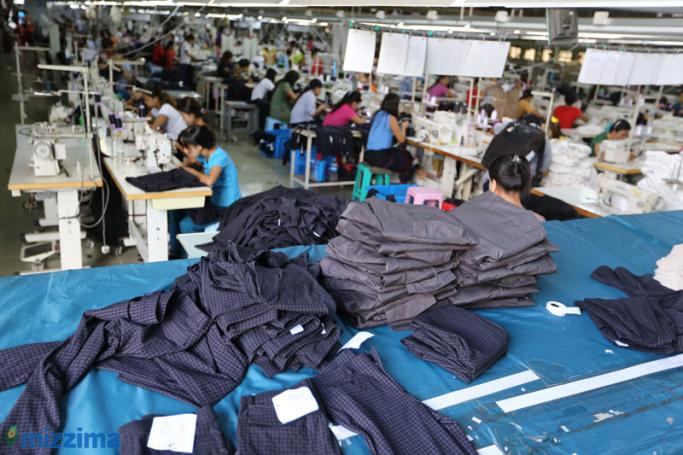As was to be expected the backlash against the approval of the minimum wage has led to punitive attacks not on the Government but rather the local workforce. It had already been known during discussions of the passing of the Minimum Wage Law that the Garment Industry especially was preparing to push through the point that it could not increase the salary to the minimum amount without significant job losses. While job losses have not so far been on the scale anticipated, employers have found other ways of shouldering the extra costs often by punishing their employees.
A recent case in point was highlighted after several workers who had been sacked when Myanmar’s new minimum wage was enacted, filed a lawsuit against their former employer who had refused to reinstate them to their posts.
As advised, the workers had initially asked an arbitration office to settle the dispute with their former employer, the owner of the Asia Rose garment factory in Hlaing Tharyar Industrial Zone. The arbitration office ruled that seven of the 196 laid-off workers should return to their posts, while the rest should be compensated by the factory owner.
That said however, some of the workers have criticised the arbitration office’s decision. According to Ma Thandar Moe, one of the employees laid off after working there for 11 years, those dismissed had decided to take their boss to court as the arbitration office’s decision did not satisfy their demand for the boss to reinstate them at the factory. The workers are accusing the factory owner of firing them without giving due notice or allowing the issue to go before the factory’s negotiating committee.
A new compensation law that came into effect in July means workers hired for less than six months receive no compensation. However, according to the Asia Rose factory labour union, most of the laid-off workers there have eight to 13 years of employment.
U Htay, a member of the township Arbitration Council in Hlaing Tharyar, said the workers believed the factory fired those with experience and skills because management did not want to pay them according to the new minimum wage law.
Approximately 500 workers around the country lost their jobs after the country adopted the minimum wage of K3,600 (US$2.80) for an eight-hour work day on 28 August while a number of other factories have reportedly stopped providing free transport and overtime pay in order to maximise their profits.
Deputy Minister for Labour and Employment U Htin Aung has held talks with factory bosses from industrial zones to discuss sharing the costs of providing housing and transport services to workers. However no agreement has been reached. He has noted that those who lost their jobs may be able to find new ones in the same sector, and explained that several garment factories were seeking additional workers after receiving new work orders following the enactment of the minimum wage.
The fact remains that the minimum wage has not reduced the international demand from garment factories, rather it has reduced the already overinflated profits for factory owners who would rather punish workers for wanting a fair salary than take a minor decrease in their profits. Perhaps it is time that the courts look favourably on the employees when passing judgement in lawsuits brought by workers and possibly set a precedent for other factory owners to consider when dealing with their workforce.
This Article first appeared in the October 1, 2015 edition of Mizzima Weekly.
Mizzima Weekly is available in print in Yangon through Innwa Bookstore and through online subscription at www.mzineplus.com
You are viewing the old site.
Please update your bookmark to https://eng.mizzima.com.
Mizzima Weekly Magazine Issue...
14 December 2023
Spring Revolution Daily News f...
13 December 2023
New UK Burma sanctions welcome...
13 December 2023
Spring Revolution Daily News f...
12 December 2023
Spring Revolution Daily News f...
11 December 2023
Spring Revolution Daily News f...
08 December 2023
Spring Revolution Daily News f...
07 December 2023
Diaspora journalists increasin...
07 December 2023
Thirty horse riders take part in NLD campaign rally












